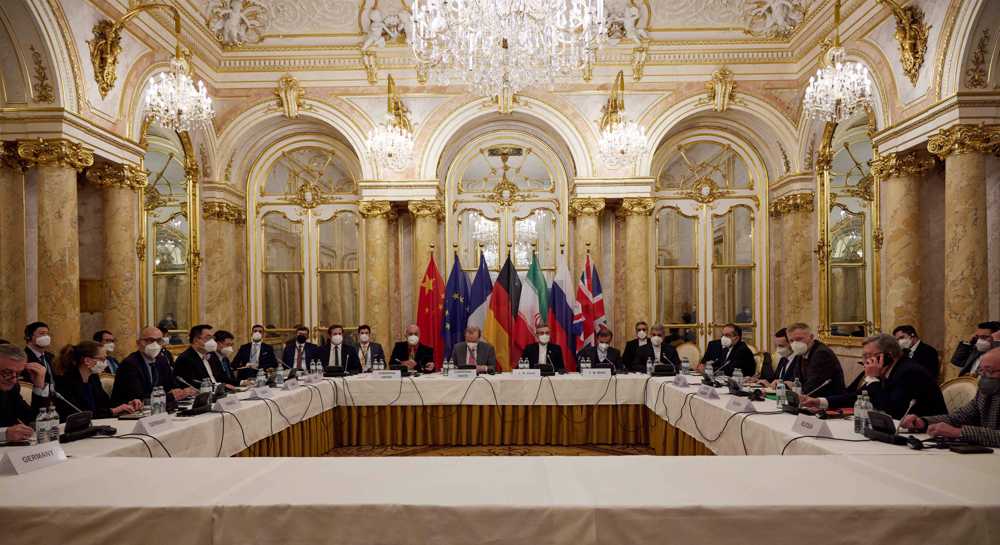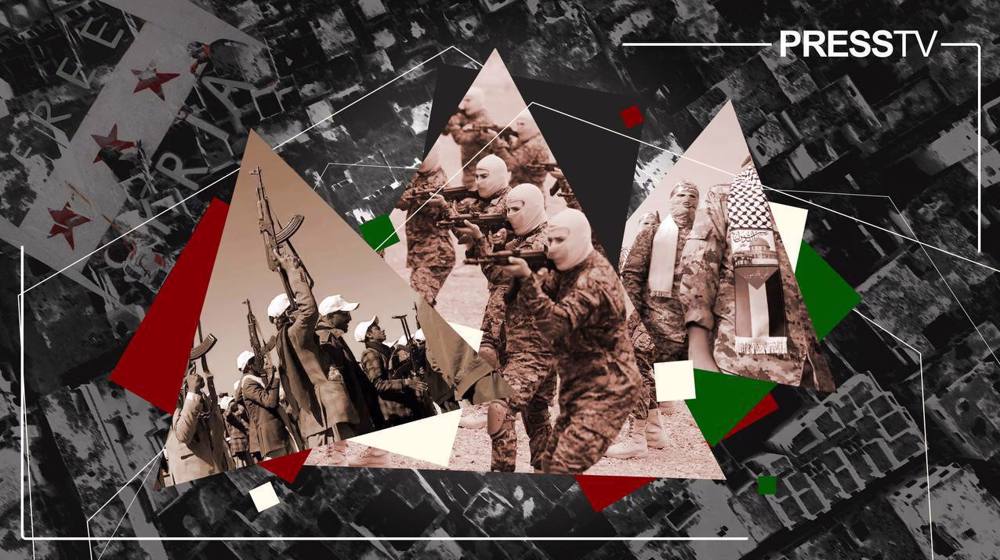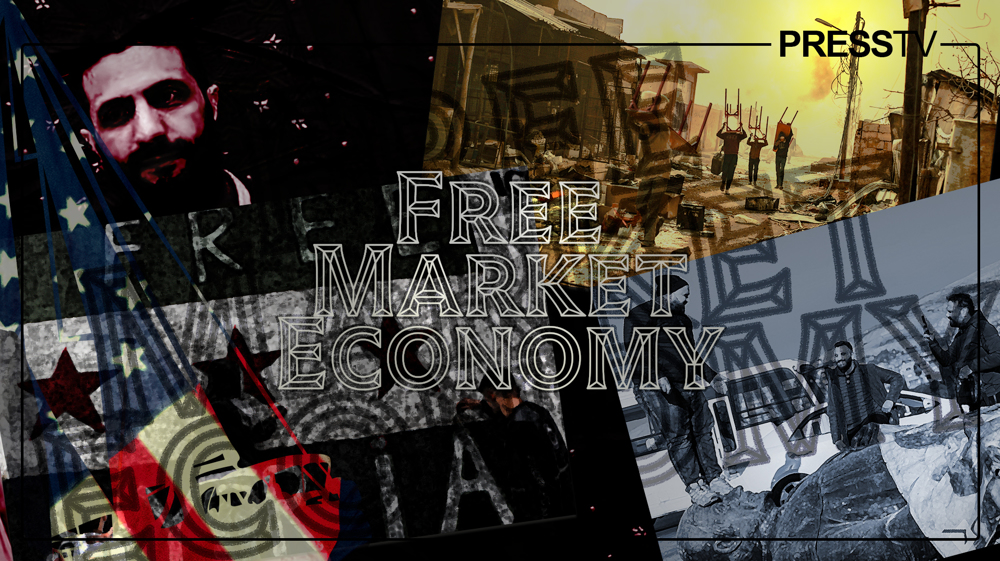Iran, P4+1 talks: Why does Western side insist that time is pressing?
Yesterday, following the conclusion of the third round of negotiations between Iran and the P4+1 group in Vienna, the European countries issued a joint statement, insisting that there had been relative progress in the talks, but also alleging that there were only a window of “a couple of weeks” not “a couple months” left for reaching an agreement.
US State Department Spokesman Ned Price confirmed that the talks had made progress, but alleged that Iran was dragging its foot at the same time as it was accelerating its nuclear program, claiming that Washington deemed the so-called strategy to be ineffective.
The comments come from the same administration that, upon assuming power, announced that the 2015 deal’s revival would take a long time. The administration wasted five months to pursue its irrelevant excessive demands.
Understanding the reason why the Western side insists on the issue of time limitation here requires us to revisit the US’s new positions concerning the deal and the ups and downs that led to resumption of the new round of the negotiations.
While he was fighting for the US presidency, Joe Biden would bank much on Donald Trump’s departure from the deal and his (Trump’s) causing damage to the US’s reputation and credibility, as a central plank of his presidential campaign.
Therefore, Biden created the impression that he would ditch Trump’s “maximum pressure” policy by returning the US to the deal and lifting Washington’s anti-Iran sanctions soon after assuming the presidency in order to at least return the situation to how it used to be before America left the deal.
However, shortly after the power transition in favor of Biden, the new foreign policy officials indicated that the new US president intended to adopt a new approach towards returning to the deal.
Attending congressional hearings, Biden’s foreign policy officials revealed that he intended to give a chance to seeing if he could intrumentalize the sanctions in order to strike a deal with Iran that would go beyond the previous deal.
US Secretary of State Antony Blinken revealed this by announcing that Washington sought to try for a “stronger and longer” agreement.
Not only did Blinken announce this in his remarks to the media, but also he clearly declared that there was a long way ahead before the US could return to the deal during congressional hearings.
Blinken’s deputy Wendy Sherman corroborated this policy by alleging before Congress that the situation differed fundamentally compared to the time when the US struck the deal in 2015. Therefore, she claimed, Washington had to go down a different path if it sought to renew its participation in the deal.
Iran’s response, however, manifested itself in the form of tough, but principled positions.
Adopting a policy of “active resistance,” the Islamic Republic would speedily pursuing reduction of its commitments under the deal, while at the same time insisting on the imperative that the US would only be allowed to return to the deal after it removed all the sanctions that it had imposed in relation to the deal or beyond that. Tehran also insisted that the US had to provide guarantees that the new administration would not be able to repeat the previous one’s illegal measures.
Iran’s practical steps in the face of the Biden administration’s duplicitous way of deploying Donald Trump’s “maximum pressure” policy to extract more concessions from the Islamic Republic saw Tehran increasing the level of its uranium enrichment from five to 20 percent, and then continuing the trend towards 60-percent enrichment level, and also activating the new-generation centrifuges.
The Iranian Parliament’s ratification of a law – dubbed the Strategic Action Plan to Counter Sanctions and Protect the Iranian Nation’s Rights – and the remarkable increase in Iran’s peaceful nuclear activities, and limitation of the IAEA’s inspections to the Safeguards Agreement, sent across this definitive message to the new US administration that Tehran would never cave in, in the face of America’s excessive demands and one-upmanship, whether it was coming from the Republicans or the Democrats under the guise of the negotiations.
The US administration’s new game lasted for five months. After the Biden foreign policy team despaired of forcing Iran to negotiate under duress, talks resumed among the deal’s Joint Commission without the US’s direct attendance.
Iran’s previous administration conducted six rounds of talks, with the Western side’s still trying to apply various political, psychological, and media pressures in order to impose their demands on the Islamic Republic. However, despite some unacceptable maneuvers on the part of the Iranian administration, the Islamic Republic’s Supreme National Security Council (SNSC) did not approve of the talks’ result, something that led to resumption of the negotiations under the next Iranian administration.
The Islamic Republic then conducted its 13th presidential elections, resulting in Ebrahim Raeisi’s victory in the polls, a development that communicated a clear message of warning to the Western sides, including the US.
Undoubtedly, Raeisi’s election by the Iranian people was rooted in the public disinterest and resentment that had been caused by the West and the US’s constant non-commitment. The public had also grown weary of the support that some would lend the mindset that was in favor of cooperation with the West in favor of resolution of the Islamic Republic’s problems.
Facing Iran’s decisive reactions in the face of its excessive demands, the United States has been forced to row back from its illogical positions, and is trying to render the Iranian negotiators inactive through psychological pressure by creating the impression that there exists a time limit for reaching an agreement.
The question that the Western side, especially the Americans, have failed to answer so far here is why the time element always has to work against Iran!
Why the time element is so important right now, while it was not during the years that went by following Trump’s departure from the deal and his imposition of toughest sanctions on Iran or even during the five months that passed following the new administration’s assumption of power, during which the administration failed to work towards removal of the sanctions, and instead sought to deploy Trump’s sanctions towards applying more pressure on Iran?
Beyond any doubt, Iran’s principled positions would not be affected by the US and Europe’s political and psychological games this time either, and the Iranian negotiators would not compromise the Iranian nation’s rights in favor of bogus time limits.
If the Western sides are so pressed for time, the best and fastest way of relieving this pressure is for them to remove all the sanctions and return to their commitments under the deal.
This article was originally published in Farsi by Nour News website, which is affiliated with Iran’s Supreme National Security Council (SNSC).
VIDEO | Austrians arrested at Gaza protest in Vienna
10 killed in bus crash in western Iran
5 Israeli forces killed as Palestinian fighters face up to regime’s war machine
VIDEO | An insider's view of the country: Persian Tahini, Royan in Mazandaran
VIDEO | Israeli settler killed during strike against Tel Aviv; fresh aggression targets Yemen’s capital
VIDEO | Yemen’s missile strikes on Tel Aviv
Iran to open 6 GW of new power capacity by next summer
VIDEO | South Korean rallies set the stage for battle over Yoon's impeachment










 This makes it easy to access the Press TV website
This makes it easy to access the Press TV website